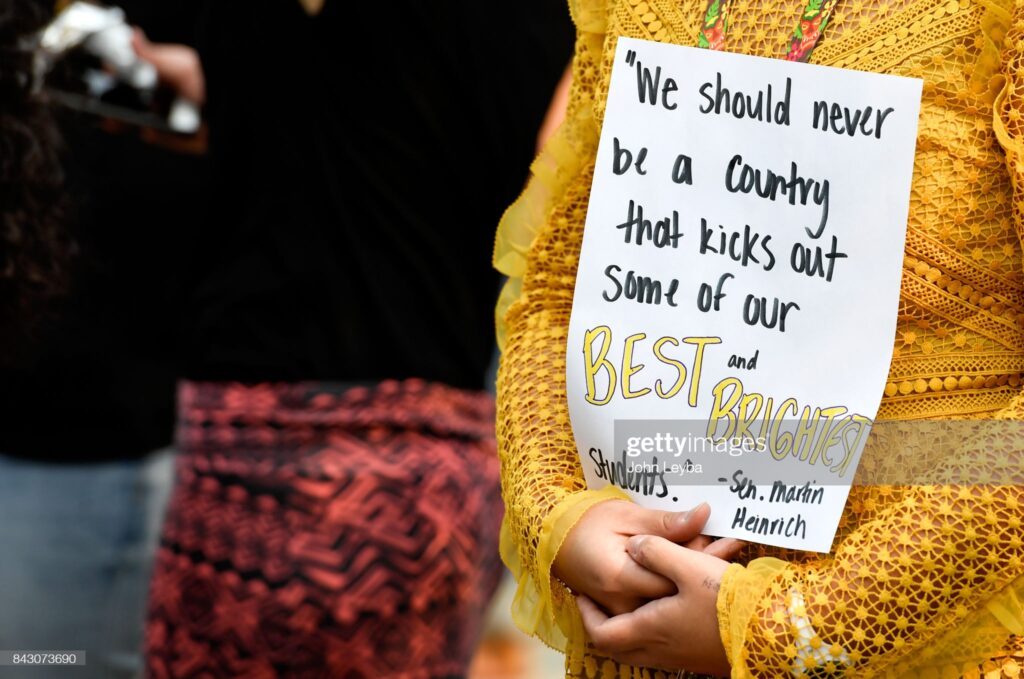
Challenges Faced by Undocumented Immigrants in Pursuing Higher Education
Undocumented students are rarely included in the macro conversation of immigration reform even though they often are the most vulnerable. Data that calculates there is an estimate of 1.8 million undocumented youth that are currently living in the United States (Gonzalez, 2007). Many dreamers do not pursue higher education due to not being eligible for federal loans and grants, lack of resources, and discriminatory policies at many institutions. Many of them come as children and are able to attend school for free from kindergarten until the 12th grade. Many of them wish to continue their education after high school and even aspired to work in the United States to contribute to the economy (Reich & Barth 2010).

Undocumented students opportunities are limited when going to college
Being undocumented limits the opportunities students have when choosing their degree and major in college (Cambridge, 2017). Students are often forced to choose a community college because the tuition cost is less. For instance, the tuition cost at a 4-year CUNY college is about $6,930 per year compared to a community college that is $4,800 per year (Cambridge, 2017). It is difficult for students to aspire to apply for private institutions because the cost is even higher than public institutions (Ngo, 2021).
Many feel hopeless because of all the barriers they face and are more likely to struggle academically. Their overall performance is affected by all of the stress generated because of their status (Ngo, 2021). Students and their families sacrifice everything; however, they are uncertain if they will be able to continue (Cuevas, 2019). Many parents also work multiple jobs to help their children cover their tuition however it can sometimes be out of their reach as well. Many of them understand the sacrifices their parents have made. Parents migrate and leave everything behind for their children to have a better future though getting an education (Gonzalez, 2011).

Consequences for a Lack of College Education for Undocumented Immigrants
Unfortunately, many dreamers are not able to continue their education and are forced to drop out of college (Torrez, 2013). While others are not able to enroll because of how complex the process is for an undocumtned students. In addition, most students are first-generation college-goers and come from low-income families (Cuevas, 2019). Which means that soon after their high school graduation they begin to contribute to their household by working to help meet ends. Students struggle with enrollment because they have to work and go to school full-time. Most undocumtbed student simply cannot afford to focus on their education only and have to juggle many things at once (Cuevas, 2019). Undocumented students are not able to work legaly in the country because of their legal status (Gonzales, 2011). Many students are forced to work off books jobs that take advantage of them and are forced to live in the shadows (Sloan, 2019).

Once students graduate from high school and transition into adulthood they are no longer protected and live under the fear of being deported (Gonzalez, 2011). Many become aware of their status and the implications that come along during their senior year in high school. Students realize just how narrow their opportunities are because they do not have a social or permanent status. Not only does it affect their education, finances it also has repercussions on their mental health. Many experience anxiety, depression, and frustration of not being able to accomplish their goals. Students are not able to have access to healthcare to revive mental health services despite being in need. Due to not having a social status they are not eligible for medicaid therefore many are not able to recive services from a therapist of soome to consult with (Cha & Ro 2019). There are organizations that offer mental health services for undocument students however, there are very limited resources. Students also struggle to find reliable resources and services because they are afraid of being deported (Cha & Ro 2019).


